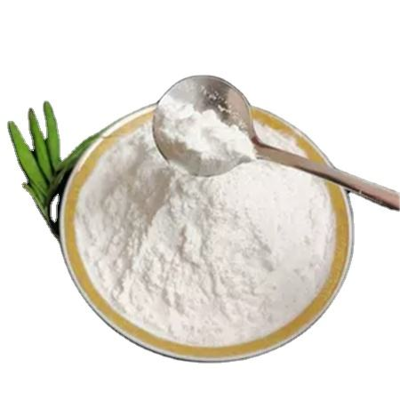-
Categories
-
Pharmaceutical Intermediates
-
Active Pharmaceutical Ingredients
-
Food Additives
- Industrial Coatings
- Agrochemicals
- Dyes and Pigments
- Surfactant
- Flavors and Fragrances
- Chemical Reagents
- Catalyst and Auxiliary
- Natural Products
- Inorganic Chemistry
-
Organic Chemistry
-
Biochemical Engineering
- Analytical Chemistry
-
Cosmetic Ingredient
- Water Treatment Chemical
-
Pharmaceutical Intermediates
Promotion
ECHEMI Mall
Wholesale
Weekly Price
Exhibition
News
-
Trade Service
【Market analysis of chemical machinery equipment network ]
Market analysis of chemical machinery equipment networkChemical machinery and equipment*Calibration: Natural gas imports continue to grow
*Calibration: Natural gas imports continue to growIn recent years, my country's natural gas industry has developed rapidly, natural gas consumption has continued to grow rapidly, and its importance in the national energy system has continued to increase.
However, my country's natural gas reserves are relatively low.
In 2019, my country's proven natural gas reserves were 8.
4 trillion cubic meters, accounting for only 4.
23%.
my country relies heavily on imports of natural gas.
However, my country's natural gas reserves are relatively low.
In 2019, my country's proven natural gas reserves were 8.
4 trillion cubic meters, accounting for only 4.
23%.
my country relies heavily on imports of natural gas.
From the perspective of natural gas imports, my country's natural gas imports continued to grow from 2015 to 2019.
In 2019, it imported 96.
56 million tons of natural gas, a year-on-year increase of 6.
9%.
In 2019, it imported 96.
56 million tons of natural gas, a year-on-year increase of 6.
9%.
After the outbreak of the epidemic in 2020, demand has fallen and the natural gas market has been hit hard.
However, with the implementation of effective anti-epidemic measures in my country, enterprises have resumed work and production in an orderly manner, and natural gas demand has maintained rapid growth.
my country's demand for natural gas is still strong, and imports continue to increase steadily.
From January to August 2020, my country imported 65.
07 million tons of natural gas, a year-on-year increase of 3.
22%.
However, with the implementation of effective anti-epidemic measures in my country, enterprises have resumed work and production in an orderly manner, and natural gas demand has maintained rapid growth.
my country's demand for natural gas is still strong, and imports continue to increase steadily.
From January to August 2020, my country imported 65.
07 million tons of natural gas, a year-on-year increase of 3.
22%.
In terms of types, my country mainly imports liquefied natural gas, and the number of liquefied natural gas imports continues to increase.
In 2019, the number of liquefied natural gas imports reached 60.
25 million tons, an increase of 12.
03% year-on-year; the import of gaseous natural gas was 36.
31 million tons, a year-on-year decrease of 0.
82%.
From January to August 2020, the import volume of gaseous natural gas further dropped by 7.
40%.
In 2019, the number of liquefied natural gas imports reached 60.
25 million tons, an increase of 12.
03% year-on-year; the import of gaseous natural gas was 36.
31 million tons, a year-on-year decrease of 0.
82%.
From January to August 2020, the import volume of gaseous natural gas further dropped by 7.
40%.
In terms of the amount of natural gas imports, my country's natural gas imports continued to grow from 2015 to 2019, but since 2018, the growth rate has declined.
In 2019, my country's natural gas imports reached 28.
751 million yuan, a year-on-year increase of 12.
67%.
In 2020, affected by the epidemic, the demand for natural gas has declined.
Affected by the decline in prices and the decline in the number of imports, the amount of natural gas imports has decreased simultaneously.
In 2019, my country's natural gas imports reached 28.
751 million yuan, a year-on-year increase of 12.
67%.
In 2020, affected by the epidemic, the demand for natural gas has declined.
Affected by the decline in prices and the decline in the number of imports, the amount of natural gas imports has decreased simultaneously.
Low natural gas exports
Low natural gas exports In terms of natural gas exports, my country's natural gas exports in 2018 were relatively large, and preliminary estimates suggest that the statistical caliber may be different from other years.
On the whole, my country's natural gas exports are relatively low.
From January to August 2020, my country's natural gas exports reached 1,943,100 tons, an increase of 46% year-on-year.
On the whole, my country's natural gas exports are relatively low.
From January to August 2020, my country's natural gas exports reached 1,943,100 tons, an increase of 46% year-on-year.
Except that in 2018, my country's natural gas export volume was not large, at around US$1 billion.
From January to August 2020, my country's natural gas exports reached US$1.
065 billion, a year-on-year increase of 67%.
From January to August 2020, my country's natural gas exports reached US$1.
065 billion, a year-on-year increase of 67%.
BP caliber: pipeline natural gas imports drop
BP caliber: pipeline natural gas imports drop According to data from BP's "Energy Yearbook 2020", my country's total natural gas imports continued to grow from 2015 to 2019, reaching 132.
5 billion cubic meters in 2019, a year-on-year increase of 9.
23%, and the growth rate has slowed down.
5 billion cubic meters in 2019, a year-on-year increase of 9.
23%, and the growth rate has slowed down.
In terms of different types, my country's pipeline natural gas imports have declined.
In 2019, my country's LNG imports reached 84.
8 billion cubic meters, a year-on-year increase of 15%; pipeline natural gas imports fell.
In 2019, imported pipeline natural gas was 47.
7 billion cubic meters, a year-on-year decrease of 0.
42%.
In 2019, my country's LNG imports reached 84.
8 billion cubic meters, a year-on-year increase of 15%; pipeline natural gas imports fell.
In 2019, imported pipeline natural gas was 47.
7 billion cubic meters, a year-on-year decrease of 0.
42%.
From the perspective of my country's natural gas import structure, my country mainly imports liquefied natural gas.
The proportion of my country's liquefied natural gas imports continued to increase from 2015 to 2019, from 45% in 2015 to 64% in 2019, an increase of nearly 10 percentage points.
The proportion of pipeline natural gas has been declining, from 55% in 2015 to 36% in 2019.
The proportion of my country's liquefied natural gas imports continued to increase from 2015 to 2019, from 45% in 2015 to 64% in 2019, an increase of nearly 10 percentage points.
The proportion of pipeline natural gas has been declining, from 55% in 2015 to 36% in 2019.
LNG is mainly imported from Australia
LNG is mainly imported from Australia From the perspective of LNG importing countries or regions, my country mainly imports LNG from Australia.
In 2019, my country imported 39.
8 billion cubic meters of liquefied natural gas from Australia, accounting for 47%; followed by imports of liquefied natural gas from Qatar, Malaysia, Indonesia and other places, the imports were 11.
4 billion cubic meters, 10 billion cubic meters and 6.
2 billion cubic meters, respectively.
, Accounting for 13%, 12% and 7% respectively.
In 2019, my country imported 39.
8 billion cubic meters of liquefied natural gas from Australia, accounting for 47%; followed by imports of liquefied natural gas from Qatar, Malaysia, Indonesia and other places, the imports were 11.
4 billion cubic meters, 10 billion cubic meters and 6.
2 billion cubic meters, respectively.
, Accounting for 13%, 12% and 7% respectively.
Pipeline natural gas is mainly imported from Turkmenistan
Pipeline natural gas is mainly imported from Turkmenistan In terms of pipeline natural gas importing countries or regions, my country's onshore oil and gas pipelines have basically formed a nationwide natural gas pipeline network supply pattern connecting overseas, covering the whole country, spanning east and west, north and south.
Due to the constraints of infrastructure and geographical location, my country mainly imports pipeline natural gas from frontier countries such as Kazakhstan, Turkmenistan, Uzbekistan, Russia and other regions.
In 2019, my country imported a large amount of pipeline natural gas to Turkmenistan, the import volume reached 31.
6 billion cubic meters, accounting for 66%; secondly, it imported 6.
5 billion cubic meters of pipeline natural gas to Kazakhstan, the import ratio reached 14%.
Due to the constraints of infrastructure and geographical location, my country mainly imports pipeline natural gas from frontier countries such as Kazakhstan, Turkmenistan, Uzbekistan, Russia and other regions.
In 2019, my country imported a large amount of pipeline natural gas to Turkmenistan, the import volume reached 31.
6 billion cubic meters, accounting for 66%; secondly, it imported 6.
5 billion cubic meters of pipeline natural gas to Kazakhstan, the import ratio reached 14%.
In June 2020, the national* "Guiding Opinions on Energy Work in 2020" showed that the construction of a natural gas production, supply, storage and marketing system was accelerated.
Among them, speed up the construction of pipeline networks and gas storage facilities, clarify the responsibilities of upstream gas supply companies and national pipeline network companies for gas storage, speed up the construction of key gas storage bases and gas storage facilities, and advance the implementation of liquefied natural gas (LNG)* agreements in an orderly manner And spot purchases.
In the future, my country will further strengthen its natural gas supply capacity.
Among them, speed up the construction of pipeline networks and gas storage facilities, clarify the responsibilities of upstream gas supply companies and national pipeline network companies for gas storage, speed up the construction of key gas storage bases and gas storage facilities, and advance the implementation of liquefied natural gas (LNG)* agreements in an orderly manner And spot purchases.
In the future, my country will further strengthen its natural gas supply capacity.
For more data, please refer to the "Analysis Report on Market Prospects and Investment Strategic Planning of China's Oil and Gas Development Industry" issued by the Qianzhan Industry Research Institute.
At the same time, the Qianzhan Industry Research Institute also provides industrial big data, industrial planning, industrial declaration, industrial park planning, and industrial investment promotion.
Solutions such as investment attraction.
At the same time, the Qianzhan Industry Research Institute also provides industrial big data, industrial planning, industrial declaration, industrial park planning, and industrial investment promotion.
Solutions such as investment attraction.
Original title: Ten pictures show you the status quo and trend analysis of China's natural gas import and export development in 2020, the import of LNG exceeds 60%







